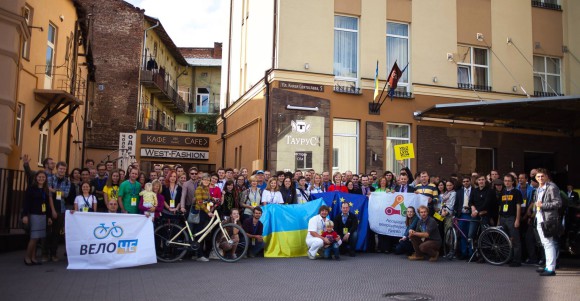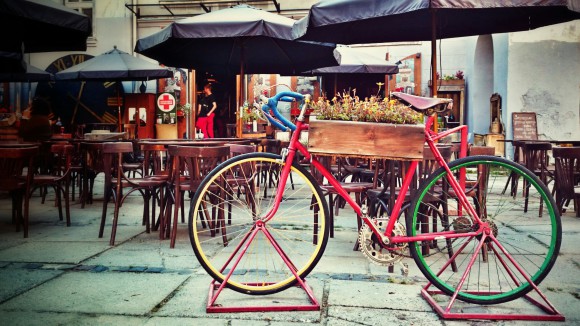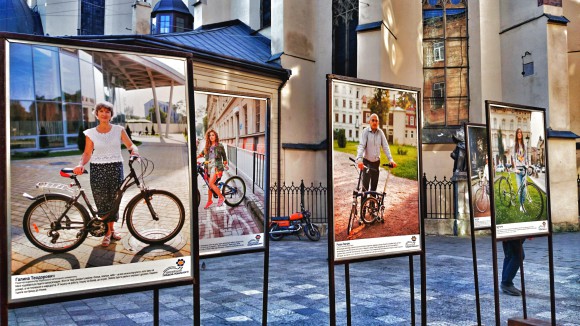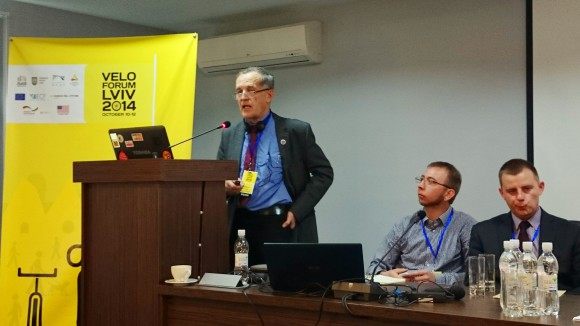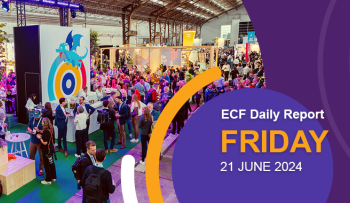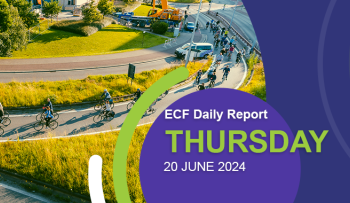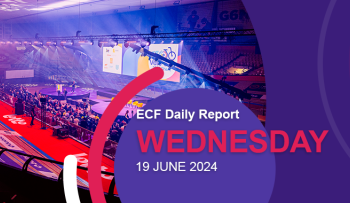
VELOFORUM – A Giant Leap for Promoting Cycling in Ukraine
The 6th VELOFORUM cycling congress that took place from 10 to 12 October in Lviv, Western Ukraine, proved to be a huge success for the country’s dynamic cyclist community. A record-high number of over 140 participants from different countries met to exchange ideas on the development of cycling in Europe and Ukraine, against the general background of making cities more livable and encouraging a participatory democratic process at the local level.
The congress was co-organised by ECF member organisation Kyiv Cyclists’ Association (AVK), the Center for Social and Business Initiatives of Yaremche, and the City of Lviv Promotion Bureau. Participants included cyclist activists from all around Ukraine, but also from other Central and Eastern European countries, as well as urban planners, traffic scientists, city officials and business representatives from the bike sales and cycle tourism sectors. ECF was part of the action - here is a first-hand account of a great congress.
Presentations testimony to dynamic cycling culture in Ukraine
Speakers covered a wide range of subjects, ranging from infrastructure development, the promotion of cycling and public bike share schemes, to the economic benefits of cycling, urban cycling culture and cycle tourism. Numerous presentations bore witness to the creativity of the Ukrainian cyclist community and the commitment of activists. Here are just two of the presented initiatives – they could serve as examples for cycling activists all around Europe:
- Olha Raiter combines the ‘seventh art’ with cycling. The CEO of the Lviv visual art formation called “Wiz-Art”, introduced “Rover Film Festival” in Lviv. The energy needed for projecting the film is produced by converted bikes (see video trailer)
- Anna Gaidai uses innovative data collection methods. Anna from AVK presented her organisation’s data collection project. Using a sophisticated methodology, AVK volunteers are counting the numbers of cyclists in Kyiv, taking into account criteria such as gender or weather conditions and making qualitative assessments regarding different types of cyclists (sporty cyclists or regular functional bike users).
Outstanding engagement by Lviv, the host city
The engagement of the host city, Lviv, was equally exemplary. On Sunday morning, the municipality’s promotion bureau organised a bike tour of the city for conference participants, in order to demonstrate what has already been achieved in terms of building up cycling facilities. This city is the first one in the Ukraine with a cycling officer, Oleh Shmid, who has put in place an ambitious cycling policy, including infrastructure building as well as promotion campaigns for cycling to work. Demyan Danylyuk from the city promotion bureau explained the city’s motivation: “Everytime you take your bike to get to work or for leisure, you make Lviv a better place to live” (see a video about Lviv’s cycling policy here).
Current political situation in Ukraine addressed
Obviously, cycling policy and promotion in Ukraine can ignore neither the political changes that have occurred during the last year nor the difficult situation the country finds itself in at the moment. This issue was addressed by several participants, amongst them AVK board member Victor Zagreba, who explained why it was decided to hold VELOFORUM this year, despite the war that rages in the Eastern part of the country: “Of course, cycling is not a number one priority for many Ukrainian citizens in these difficult times. However, we should be ready for the moment when things get back to normal, so that we won’t have to start from zero again with cycling promotion”.
In his keynote speech, ECF Vice-President Piotr Kuropatwiński established the link between cycling, freedom and democracy. Referring to the tradition of the “round table” that marked the transition to democracy in Central and Eastern Europe, he asked cyclist groups to become actively involved in local transition processes towards more livable cities. Paraphrasing John F. Kennedy, Kuropatwiński told them: “Do not ask what the city can do for cyclists, rather ask what cyclists can do for the city”.
About the Author
 Holger Haubold is ECF's Fiscal and Economic Policy Officer. Prior to joining ECF, he worked as a trainee at the Council of the European Union and did a Master in European Studies and Economics at ULB Brussels.
Holger Haubold is ECF's Fiscal and Economic Policy Officer. Prior to joining ECF, he worked as a trainee at the Council of the European Union and did a Master in European Studies and Economics at ULB Brussels.
- Log in to post comments
Contact the author
Recent news!
Upcoming events
Contact Us
Avenue des Arts, 7-8
Postal address: Rue de la Charité, 22
1210 Brussels, Belgium

